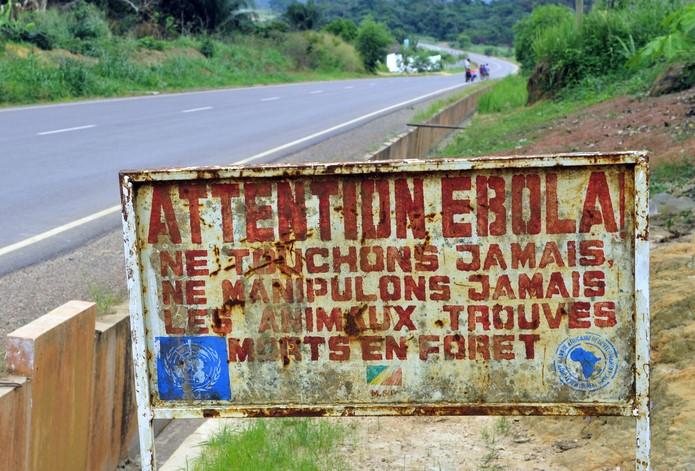The United Nations (UN) today announced the creation of an emergency Ebola response coordinator, a role that officials hope will tackle the security and political challenges facing the response efforts in the Democratic Republic of the Congo's (DRC's) 10-month-long Ebola outbreak.
The UN appointed David Gressly, MBA, currently the UN's deputy special representative for peacekeeping missions in the DRC, to the post. Gressly is expected to work closely with the World Health Organization (WHO).
"The Ebola response is working in an operating environment of unprecedented complexity for a public health emergency—insecurity and political protests have led to periodic disruptions in our efforts to fight the disease," said Gressly in a WHO statement. "Therefore, an enhanced UN-wide response is required to overcome these operating constraints, and this includes moving senior leadership and operational decision making to the epicenter of the epidemic in Butembo. We have no time to lose."
Despite the liberal use of an effective vaccine, the current Ebola outbreak has proven difficult to manage, with an up-and-down transmission pattern caused by frequent violent attacks in the region. Additionally, community resistance to healthcare workers and response team members has made surveillance difficult.
The DRC will likely confirm 11 more new cases today, raising the outbreak total to 1,877, including 1,241deaths, according to the WHO's Ebola dashboard.
Yesterday, the DRC's ministry of health said another health worker had been infected in Katwa, the current epicenter of virus activity. The worker was unvaccinated.
The case raises to 105 the number of health worker affected by this outbreak. Healthcare workers represent 5.6% of Ebola cases in the DRC, and 35 have died.
DRC wants more Merck vaccine
As of yesterday, 121,868 people in the DRC and surrounding countries had been vaccinated with Merck's unlicensed VSV-ZEBOV vaccine, in a ring vaccination campaign that focuses on case contacts and contacts of contacts.
Yesterday, the DRC called for more of Merck's product—and asked that it be licensed—to continue vaccination efforts, rather than introduce Johnson & Johnson's Ebola vaccine into the outbreak setting.
According to Reuters, officials worry that introducing another new vaccine into the outbreak region may cause confusion. They also quoted DRC's Minister of Health Oly Ilunga Kalenga, MD, as saying that authorities will roll out a new "geographic" ring vaccination strategy.
"You do not only vaccinate the people in the household," he said. "You have to consider the household as the case and then vaccinate all the households around the case."
Kalenga said the new strategy could interrupt transmission chains quickly, and that by licensing VSV-ZEBOV, the vaccination process would be streamlined and faster.
Uganda to start Janssen vaccine trials
In other vaccine news, the Uganda Virus Research Institute will begin two human trials of Janssen Pharmaceutical Company's Ebola vaccine candidate in July. The vaccine has already been tested in the United Kingdom.
Healthy volunteers will be given two doses, a priming dose and a booster. According to All Africa, the vaccine contains strains from Ebola Zaire, Ebola Tai Forest, and Ebola Sudan viruses, as well as Marburg virus.
See also:
May 23 WHO statement
WHO online Ebola dashboard
May 22 DRC update
May 22 Reuters story
May 23 All Africa story


















